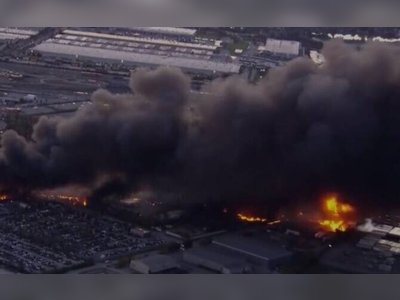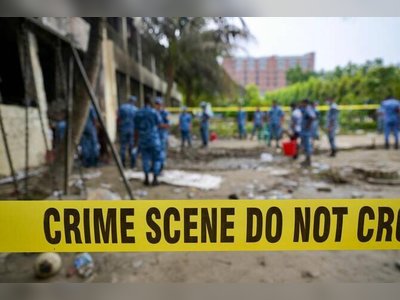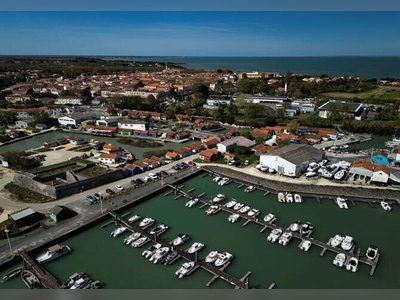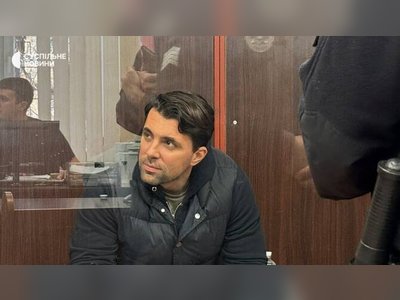Ukraine Resumes Gas Imports via Transbalkan Route to Maintain System Operations
Ukraine turns to the Transbalkan route for gas imports, securing critical gas supplies after Russian strikes impact domestic production.
Ukraine has recommenced its use of the Transbalkan pipeline route, which carries natural gas from Greece through several Balkan countries to Ukraine, aiming to sustain its heating and electricity systems throughout the winter.
This decision comes in response to significant damages inflicted on Ukraine's gas infrastructure by intensified Russian strikes, leading to a reduction in domestic gas production.
According to data from Ukraine's gas transit operator, imports via the Transbalkan route on Wednesday amounted to 1.1 million cubic meters (mcm), following a supply of 0.78 mcm on Tuesday.
The pipeline connects Ukraine to liquefied natural gas (LNG) terminals in Greece, traversing Moldova, Romania, and Bulgaria.
Greek DEPA Commercial, D.Trading—a subsidiary of Ukraine’s largest private energy firm DTEK—and Swiss Axpo Trading had previously booked capacity for importing gas from Greece to Ukraine, with a daily import volume of 0.6 mcm anticipated.
Ukraine continues to supplement its gas needs through imports from neighboring countries, including approximately 23 mcm per day from Hungary, Poland, and Slovakia.
The Transbalkan route was not utilized in September and October and had been operational only during July and August prior to this recent resumption.
The decision to import via the Transbalkan route is part of a broader strategy to maintain high pressure in Ukraine's gas pipelines, ensuring that its energy system remains functional despite decreased domestic production.
Oleksandr Kharchenko, director of the Kyiv-based Center of Energy Studies, has pointed out that Russian attacks have destroyed numerous gas compressors essential for operating the system.
The scarcity and high cost of these compressors, compounded by global demand, pose significant challenges to restoring full capacity.
Recovery efforts are expected to take a considerable time frame, with Kharchenko stating that restoring 30 percent to 40 percent of the damaged capacity will not be feasible during the heating season due to the unavailability and cost of new compressors.
Moreover, the process of restoring gas production is projected to span 15-18 months.
This development underscores Ukraine's efforts to secure its energy supplies amid ongoing geopolitical tensions with Russia, highlighting the strategic importance of alternative import routes in maintaining energy security.
This decision comes in response to significant damages inflicted on Ukraine's gas infrastructure by intensified Russian strikes, leading to a reduction in domestic gas production.
According to data from Ukraine's gas transit operator, imports via the Transbalkan route on Wednesday amounted to 1.1 million cubic meters (mcm), following a supply of 0.78 mcm on Tuesday.
The pipeline connects Ukraine to liquefied natural gas (LNG) terminals in Greece, traversing Moldova, Romania, and Bulgaria.
Greek DEPA Commercial, D.Trading—a subsidiary of Ukraine’s largest private energy firm DTEK—and Swiss Axpo Trading had previously booked capacity for importing gas from Greece to Ukraine, with a daily import volume of 0.6 mcm anticipated.
Ukraine continues to supplement its gas needs through imports from neighboring countries, including approximately 23 mcm per day from Hungary, Poland, and Slovakia.
The Transbalkan route was not utilized in September and October and had been operational only during July and August prior to this recent resumption.
The decision to import via the Transbalkan route is part of a broader strategy to maintain high pressure in Ukraine's gas pipelines, ensuring that its energy system remains functional despite decreased domestic production.
Oleksandr Kharchenko, director of the Kyiv-based Center of Energy Studies, has pointed out that Russian attacks have destroyed numerous gas compressors essential for operating the system.
The scarcity and high cost of these compressors, compounded by global demand, pose significant challenges to restoring full capacity.
Recovery efforts are expected to take a considerable time frame, with Kharchenko stating that restoring 30 percent to 40 percent of the damaged capacity will not be feasible during the heating season due to the unavailability and cost of new compressors.
Moreover, the process of restoring gas production is projected to span 15-18 months.
This development underscores Ukraine's efforts to secure its energy supplies amid ongoing geopolitical tensions with Russia, highlighting the strategic importance of alternative import routes in maintaining energy security.










